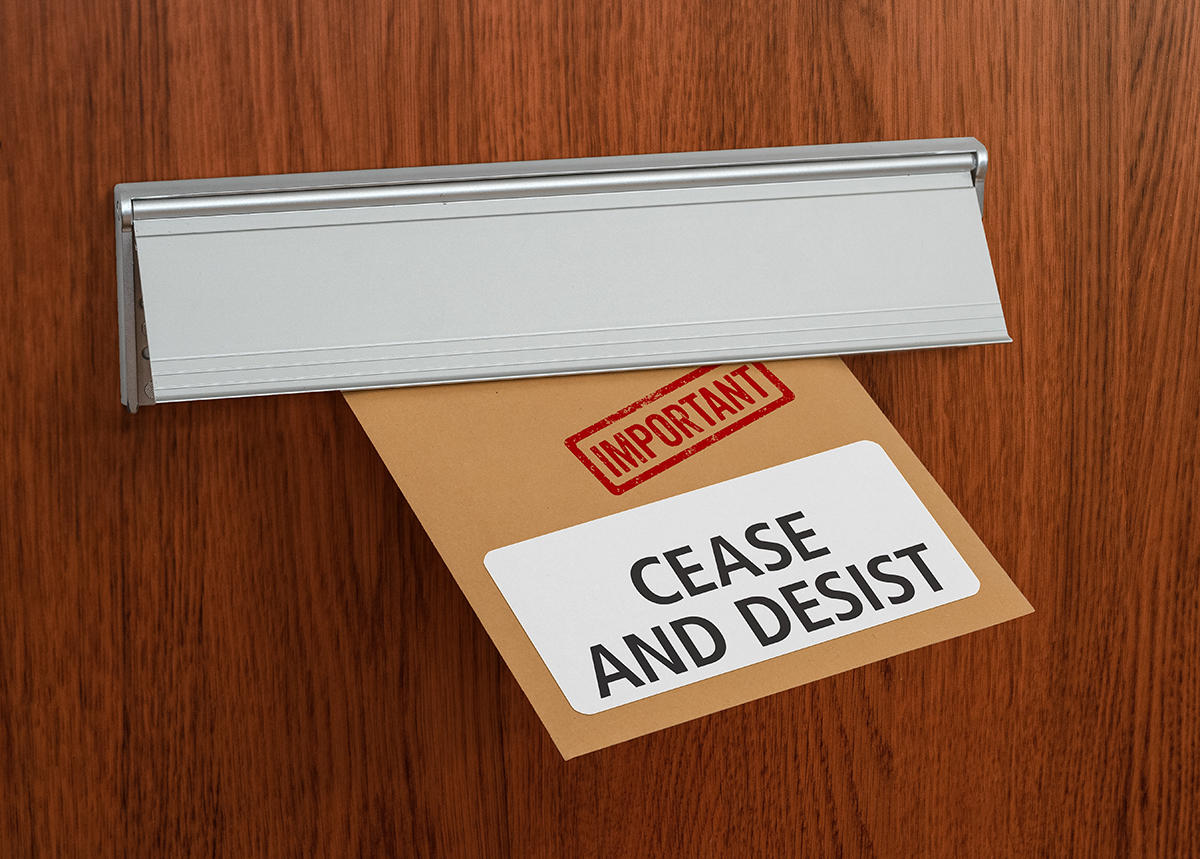Detroit Creditor Harassment
Facing creditor harassment can be a profoundly stressful and overwhelming experience, especially when it feels relentless or aggressive. If you’re dealing with persistent calls, threats, or deceptive tactics from creditors in Detroit, know that you have legal protections.
The Fair Debt Collection Practices Act (FDCPA) offers a framework to safeguard consumers from abusive debt collection practices, and Michigan state laws provide additional avenues for relief.
Whether you are considering debt management solutions, seeking legal recourse, or simply looking to halt further harassment, there are concrete actions you can take to protect yourself from creditor abuse.
Know Your Detroit Legal Rights
When facing creditor harassment, understand your legal rights. The Fair Debt Collection Practices Act (FDCPA) protects against abusive, deceptive, or unfair collection practices. Here are some key rights under the FDCPA:
Right to Be Free From Harassment
Creditors cannot:
- Call you excessively or at inconvenient times (e.g., before 8 AM or after 9 PM).
- Use threats of violence or harm.
- Use obscene language or make false statements.
- Imply that you will be arrested or sued unless such actions are genuinely possible.
Right to Dispute Debt
If you believe you do not owe the debt or the amount is incorrect, you have the right to dispute it. Within 30 days of receiving a written notice, you can request that the creditor provide proof of the debt.
Right to Request a Cease-and-Desist
You have the right to request that the creditor stop contacting you. This must be done in writing, and once received, most creditors must cease communication. However, this does not eliminate your obligation to pay the debt.

What to Know About Creditor Harassment Protection in Michigan
In addition to these federal protections, Michigan offers extra-legal avenues to combat creditor harassment:
- Michigan Consumer Protection Act: Protects unfair, deceptive, and fraudulent business practices, including debt collection.
- State Regulations: Michigan’s laws prohibit creditors from engaging in harassment, deceitful practices, and other forms of intimidation.
Ways To Protect Yourself From Creditor Harassment in Detroit
If you’re facing creditor harassment in Detroit, taking immediate action can help end the stress and regain control over your situation. Here are key steps to protect yourself:
1. Document All Communication
Keeping thorough records is necessary in defending yourself against creditor harassment. Document every call, letter, and interaction with creditors or debt collectors. This documentation will serve as evidence if you need to file a complaint or take legal action.
- Phone Calls: Note the date, time, the name of the caller, and a summary of the conversation.
- Letters: Keep copies of any correspondence, including envelopes, as proof of when the communication was received or sent.
- Emails: Save all email correspondence in a dedicated folder.
Cease-and-Desist Letter.
If you are being harassed by creditors, one of the most effective ways to stop further communication is by sending a formal Cease-and-Desist Letter. This letter instructs the creditor or collection agency to stop contacting you.
While this does not eliminate your debt, it legally prohibits most direct communication. The creditor may continue legal actions, but they can no longer contact you unless through official court proceedings.
3. Know Your Options (Debt Relief)
If you are unable to pay off your debts, explore alternatives that can help you regain financial stability:
- Debt Settlement: Negotiate with creditors to reduce the total amount you owe, potentially eliminating or lowering the balance in exchange for a lump sum payment.
- Consumer Credit Counseling: Non-profit agencies offer counseling services that can assist you with budgeting, negotiating with creditors, and setting up a debt management plan.
- Bankruptcy: If your financial situation is severe, filing for bankruptcy might be an option. Bankruptcy can help discharge certain debts, but it has long-term consequences on your credit score.
4. Taking Action Against Harassment
If creditors continue to harass you despite taking preventive measures, there are additional steps you can take to protect your rights and seek justice:
Reporting the Harassment
- File a Complaint with the Consumer Financial Protection Bureau (CFPB): The CFPB is a federal agency dedicated to protecting consumers from unfair practices in the financial sector. You can file a complaint with them online, detailing the harassment you’ve faced. The CFPB will investigate the matter and work with the creditor to resolve the issue.
- Contact Michigan Attorney General’s Office: Michigan’s Attorney General has a consumer protection division that handles complaints about debt collection harassment. Filing a complaint with them can trigger an investigation into the creditor’s practices and hold them accountable for violations of Michigan’s consumer protection laws.
Legal Recourse
Sue for Violations of the FDCPA: If a creditor or collection agency violates the Fair Debt Collection Practices Act, you can sue them in federal court. If successful, you could receive damages, which could include:
- Actual damages: Compensation for any harm or distress caused.
- Statutory damages: Up to $1,000, even if you didn’t suffer actual damages.
- Attorney’s fees: If you win the case, the court may require the creditor to pay for your legal costs.
File a Lawsuit in State Court: If your case is related to Michigan’s consumer protection laws, you may also file a suit in Michigan state court against the creditor for violating state laws.

What Happens If Creditors Continue Harassing You After the Automatic Stay?
Once you file for bankruptcy, the automatic stay takes effect, stopping most creditor actions such as collection calls, lawsuits, wage garnishments, and foreclosures. However, if creditors continue to harass you or ignore the automatic stay, there are penalties for violating this legal protection.
Creditors who break the automatic stay can face serious consequences, including fines and sanctions imposed by the bankruptcy court. In some cases, the court may hold the creditor in contempt, and they could be required to pay damages, including compensation for any emotional distress or legal fees you incur as a result of their actions.
If you experience continued harassment after filing for bankruptcy, keep detailed records of the violations and promptly notify your discharge violations attorney. They can take legal action to enforce your rights and ensure that the penalties for such violations are applied.
Harassment After Bankruptcy and the Legal Repercussions in Detroit
If creditors continue to harass you after you’ve filed for bankruptcy, it is considered a violation of the automatic stay. Here are the key legal repercussions in Detroit if creditors disregard the protection provided by the bankruptcy court:
- Contempt of Court: Creditors who continue collection activities after the bankruptcy filing can be held in contempt of court. This is a serious legal offense, and the creditor could face consequences for disregarding the court's order to stop all collection efforts.
- Fines and Sanctions: The bankruptcy court has the authority to impose fines or sanctions on creditors who violate the automatic stay. These penalties can range from monetary fines to more severe sanctions that may impact the creditor’s ability to continue their business operations.
- Damages: If a creditor violates the automatic stay, the debtor may be entitled to damages. These damages could include compensation for emotional distress caused by the harassment or for additional legal expenses incurred while defending against the creditor's unlawful actions.
- Attorney’s Fees: In cases where a creditor violates the automatic stay, the debtor can also seek reimbursement for attorney’s fees and other legal costs incurred in enforcing the stay and taking action against the creditor.
- Legal Action to Enforce Rights: If creditor harassment continues, the debtor has the legal right to take action against the creditor. The debtor can file a motion in bankruptcy court to enforce the automatic stay, and in some cases, the court may even issue an order for the creditor to cease their collection attempts.
- Importance of Legal Representation: If you are being harassed by creditors after filing for bankruptcy, contact your bankruptcy attorney immediately. They can take the necessary legal steps to protect your rights, prevent further harassment, and ensure that the creditor faces appropriate penalties for violating the automatic stay.
If you have been affected by creditor harassment in Detroit, contact the discharge violations attorneys at Frego & Associates today for a free consultation.
FAQs
Creditor harassment includes practices such as making repeated calls, threatening legal action, using abusive or profane language, calling outside reasonable hours (before 8 a.m. or after 9 p.m.), and continuing contact after you’ve asked them to stop. These actions violate both federal and state laws protecting consumers.
The Fair Debt Collection Practices Act (FDCPA) is a federal law that prohibits debt collectors from using abusive, unfair, or deceptive methods to collect debts. It protects you from harassment by limiting when and how collectors can contact you, including stopping them from contacting you at work or using false threats.
Creditors are prohibited from calling your workplace if you’ve informed them that you cannot receive such calls there. If they continue to do so, this is considered harassment under the FDCPA, and you have the right to take legal action against them.
If you believe the debt isn’t yours, request a debt validation letter from the collector within 30 days of their initial contact. This letter will require the creditor to provide proof of the debt. If the debt is not validated, you can dispute it in writing and stop further collection efforts.
Yes, you can sue a debt collector under the FDCPA for violating your rights. You may be entitled to up to $1,000 in statutory damages, as well as actual damages for emotional distress or financial harm, and you can also recover attorney’s fees and court costs.
If debt collectors are overwhelming you, consider reaching out to a consumer rights attorney, a credit counseling agency, or a legal aid organization in Detroit. These professionals can help you understand your rights, work on stopping the harassment, and explore options such as debt management or bankruptcy.
You have one year from the date of the violation to file a lawsuit under the FDCPA. If you miss this window, you may lose your ability to pursue legal action and claim damages for the harassment.




